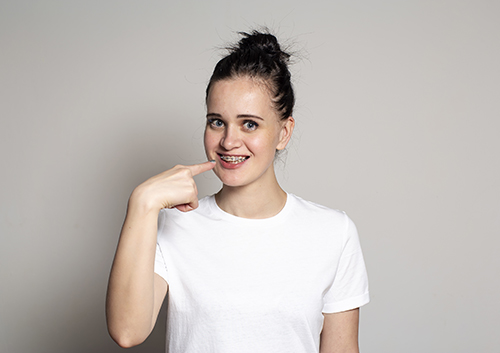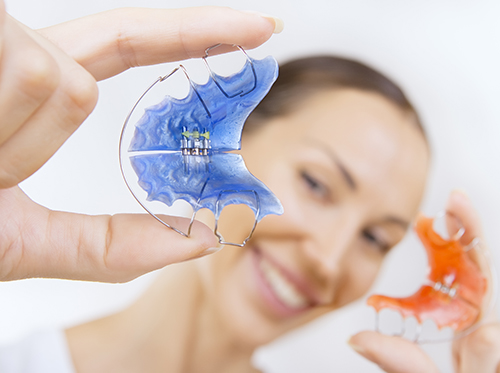Time to Brush Up on Brushing and Flossing
April 10th, 2024

If your child has just gotten braces, chances are it’s a good time to brush up on dental hygiene! Why now? What’s different? And how can you help? Let’s take a few minutes and explore these timely questions.
Brushing and Flossing Are Especially Important with Braces
There’s no getting around it, it’s harder to clean teeth with brackets and wires. But it’s essential to pay attention to dental hygiene. When bacteria and plaque start building up, your child is at risk for gum disease, cavities, and tooth discoloration.
- Gingivitis
This early stage of gum disease is the result of gum irritation caused by plaque. The gums become red, swollen, sore, and can bleed or start to recede. With proper brushing and flossing, gingivitis can be eliminated, along with the risk of developing more serious gum disease.
- Tooth Decay
One of the major reasons for cavities is the erosion of enamel caused by oral bacteria. These bacteria feed on sugars from our diet and produce acids that attack the tooth’s surface. Plaque, formed by a mass of these bacteria, sticks around brackets and the gum line, putting your child at risk for cavities near his orthodontic work—which might require removing wires and brackets to treat.
- Demineralization
When acids attack teeth, they remove the minerals from our enamel. This demineralization eventually leads to cavities, but in its early stages can cause white spots to appear where the mineral structure has been weakened. Braces wearers are at special risk for demineralization, especially around brackets and near the gums, where plaque can be missed while brushing.
Time for New Brushing and Flossing Techniques
Even if your child has always done a wonderful job of brushing and flossing, braces provide a new challenge for getting teeth their cleanest. Unfortunately, plaque buildup around the brackets and the gum line is all too common in orthodontic patients. Dr. Cronin can recommend some tools that make the cleaning process easier and more effective.
- Toothbrushes
Manual brushes are available with small, soft-bristled heads designed especially for braces wearers. If your child still has problems getting rid of plaque and food debris, an electric toothbrush might be helpful. And remember, encourage your child to be thorough but gentle for the sake of both braces and gums.
- Flossing with Braces
Flossing can be challenging for children at any time, but especially with braces. We’ll show you how floss threaders work, and how special flosses designed just for braces can fit under wires. This might also be a good time to invest in a water flosser. Your help demonstrating how to floss even with brackets and wires blocking the way will be appreciated by your child and your dentist!
- Products Just for Braces
Interproximal brushes are tiny cone-shaped brushes designed to fit around brackets and wires and between teeth. We can also suggest special toothpastes and rinses to help fight plaque and prevent cavities from developing. Ask us about what to shop for to make both of your lives easier.
You Can Help!
- Teamwork—Works!
When your child first gets braces, practice brushing and flossing together. Our Langley team will be happy to show you both the very best techniques for keeping teeth their cleanest and healthiest. Especially for young children, your help will make sure those techniques are learned and used.
- Make Time for Cleaning
Your child’s before-braces routine might have meant brushing two minutes each morning and two minutes at night. But thorough cleaning around brackets and wires might take a bit longer. (And, with braces, it’s best to brush after every meal rather than the common twice-a-day routine). Be available, at least at first, for a quick check to make sure braces and teeth are their cleanest. And you may have to help with removing and replacing bands until your child gets the hang of it.
- Be Prepared!
Whether it’s a day at school or an overnighter with friends, be sure your child has a kit filled with cleaning supplies ready to take along. A toothbrush, floss, an interproximal brush, toothpaste, a mirror—with these necessities, your child can keep on top of any cleaning emergencies.
For younger children especially, learning how to keep teeth and braces their cleanest can take some time. Be patient, be prepared, and be willing to help, and you and your child will have a new routine mastered—in no time at all!




